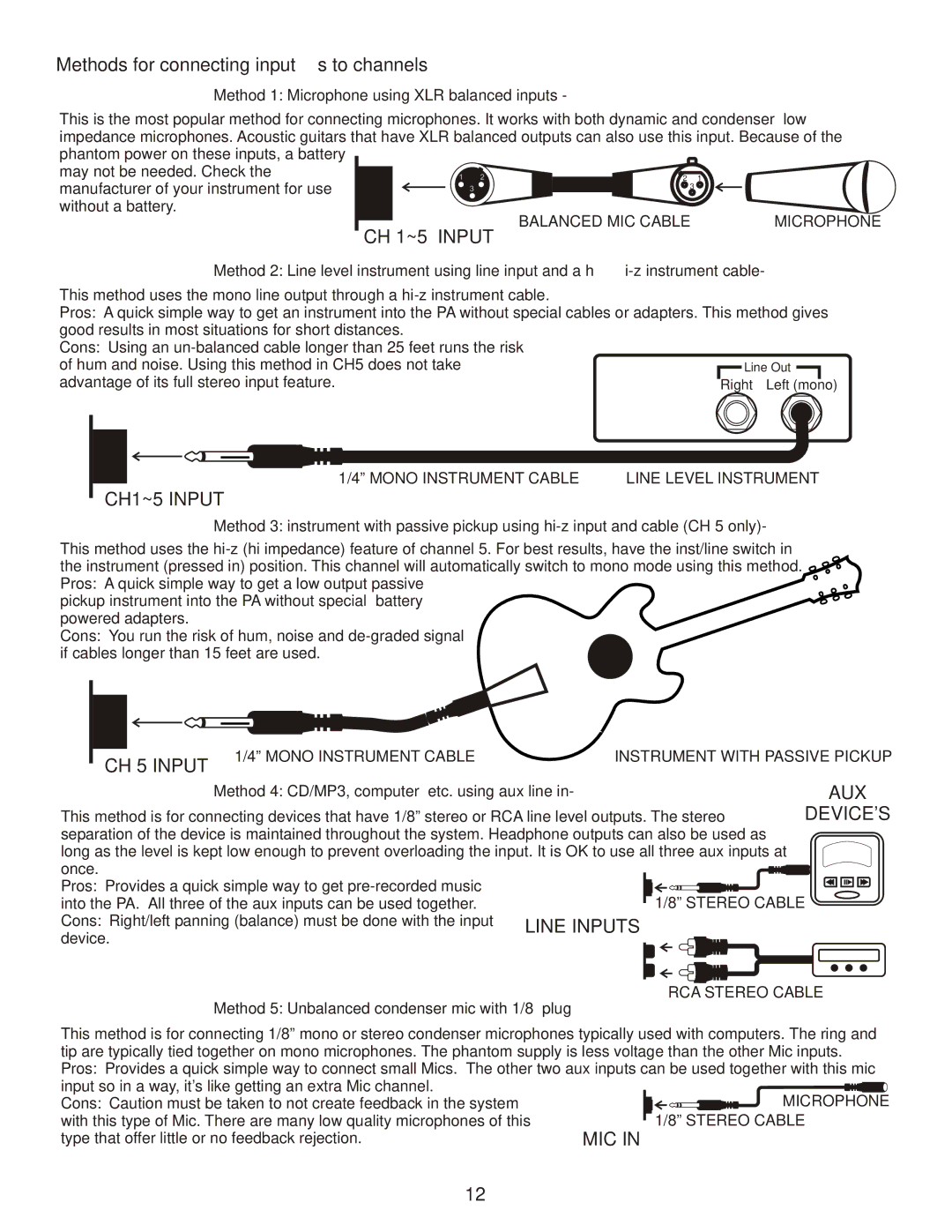
Methods for connecting inputs to channels
Method 1: Microphone using XLR balanced inputs -
This is the most popular method for connecting microphones. It works with both dynamic and condenser low impedance microphones. Acoustic guitars that have XLR balanced outputs can also use this input. Because of the phantom power on these inputs, a battery
may not be needed. Check the
2 1
manufacturer of your instrument for use3 without a battery.
BALANCED MIC CABLE | MICROPHONE |
CH 1~5 INPUT
Method 2: Line level instrument using line input and a
This method uses the mono line output through a
Pros: A quick simple way to get an instrument into the PA without special cables or adapters. This method gives good results in most situations for short distances.
Cons: Using an
1/4” MONO INSTRUMENT CABLE
CH1~5 INPUT
Method 3: instrument with passive pickup using
This method uses the
the instrument (pressed in) position. This channel will automatically switch to mono mode using this method. ![]()
![]()
![]() Pros: A quick simple way to get a low output passive
Pros: A quick simple way to get a low output passive![]() pickup instrument into the PA without special battery
pickup instrument into the PA without special battery![]()
![]() powered adapters.
powered adapters.
Cons: You run the risk of hum, noise and
1/4” MONO INSTRUMENT CABLE | INSTRUMENT WITH PASSIVE PICKUP |
CH 5 INPUT |
|
Method 4: CD/MP3, computer etc. using aux line in-
This method is for connecting devices that have 1/8” stereo or RCA line level outputs. The stereo separation of the device is maintained throughout the system. Headphone outputs can also be used as long as the level is kept low enough to prevent overloading the input. It is OK to use all three aux inputs at once.
Pros: Provides a quick simple way to get
Cons: Right/left panning (balance) must be done with the input device.
AUX
DEVICE’S
Method 5: Unbalanced condenser mic with 1/8” plug
This method is for connecting 1/8” mono or stereo condenser microphones typically used with computers. The ring and tip are typically tied together on mono microphones. The phantom supply is less voltage than the other Mic inputs. Pros: Provides a quick simple way to connect small Mics. The other two aux inputs can be used together with this mic input so in a way, it’s like getting an extra Mic channel.
Cons: Caution must be taken to not create feedback in the system![]()
![]() MICROPHONE with this type of Mic. There are many low quality microphones of this
MICROPHONE with this type of Mic. There are many low quality microphones of this
type that offer little or no feedback rejection.
12
